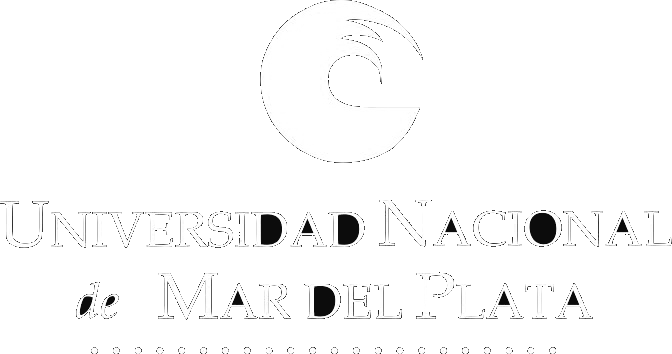The Disintegrating Concept of Homeland (Patria) in Two Poems by Jon Juaristi
Resumen
ENGLISH
In 1966, at the age of 16, the essayist and poet Jon Juaristi (Bilbao, 1951) joined Euskadi Ta Askatasuna (ETA), the Basque nationalist terrorist organization, which over the course of two decades would become one of the most infamous political antagonists in Europe. As an adult, Juaristi eventually became part of a select group of Basque intellectuals that openly repudiated the fervent nationalism of their homeland. What factor(s) created such a vast rupture between the ideology of the young Juaristi and that of his mature self? The present study seeks to answer these questions through an analysis of two of Juaristi’s poems: “Patria mía”, published in Suma de varia intención (1987) and “Patria”, published in Renta antigua (2012). Both employ classical forms, the sonnet and the silva, and feature almost identical titles. Yet a close study of their ostensibly analogous structures finds that the 2012 composition, “Patria”, challenges and rejects the form of the Petrarchan sonnet used in the 1987 “Patria mía”. A careful analysis of the two poems finds a literal disintegration of the traditional Petrarchan form between the earlier sonnet and the later silva which parallels a symbolic deterioration of the author’s concept of homeland. This deterioration reflects the author’s political dynamism over the course of twenty-five years, where Juaristi’s experience as a budding Basque nationalist catalyzed an inexorable, if gradual ideological shift from the left to center that rendered the mature Juaristi the antithesis of the young ETA member he once was.
ESPAÑOL
En 1966, a los 16 años, el ensayista y poeta Jon Juaristi (Bilbao, 1951) se unió a Euskadi Ta Askatasuna (ETA), la organización terrorista nacionalista vasca que en el transcurso de dos décadas se convertiría en uno de los antagonistas políticos más infames de Europa. Como adulto, Juaristi se convirtió en parte de un grupo selecto de intelectuales vascos que repudiaron abiertamente el ferviente nacionalismo de su tierra natal. ¿Qué factor(es) creó/crearon esta ruptura tan vasta entre la ideología del joven Juaristi y la de su ser maduro? El presente estudio busca responder estas preguntas a través de un análisis de dos de los poemas de Juaristi: “Patria mía”, publicado en Suma de varia intención (1987) y “Patria”, publicado en Renta antigua (2012). Ambos emplean formas clásicas, el soneto y la silva, y presentan títulos casi idénticos. Sin embargo, un estudio de sus estructuras aparentemente análogas revela que la composición de 2012, “Patria”, desafía y rechaza la forma del soneto petrarquista utilizado en “Patria mía” de 1987. Un análisis de los dos poemas encuentra una desintegración literal de la forma tradicional petrarquista entre el soneto anterior y la silva posterior, lo que paralela un deterioro simbólico del concepto de patria del autor. Este deterioro refleja el dinamismo político del autor en el transcurso de veinticinco años, donde la experiencia de Juaristi como un nacionalista vasco incipiente catalizó un cambio ideológico gradual e inexorable de la izquierda al centro que convertía al Juaristi maduro en la antítesis del joven miembro de ETA que antes era.
Palabras clave
Texto completo:
PDF (English)Referencias
Aretxaga, Begoña, et al. Center for Basque Studies University of Nevada. Empire & Terror: Nationalism/Postnationalism In the New Millennium. Center for Basque Studies, University of Nevada, 2005.
Ayerbe Sudupe, Mikel, ed. Our Wars. Short Fiction on Basque Conflicts. Center for Basque Studies, 2012.
Balfour, Sebastian. The Politics of Contemporary Spain. Routledge, 2005.
Bew, John, et al. Talking to Terrorists: Making Peace In Northern Ireland and the Basque Country. Columbia University Press, 2009.
Corcuera Atienza, Javier. The origins, ideology, and organization of Basque nationalism, 1876-1903. Center for Basque Studies, University of Nevada, Reno, 2006.
Esteban, Esther. “Jon Juaristi.” El Mundo Magazine, 5 mar. 2006.
Fernández Soldevilla, Gaizka, et al. Pardines: Cuando ETA empezó a matar. Tecnos, 2018.
Hidalgo, Manuel. “Jon Juaristi: ‘Ser español y ser vasco es muy cansado.’” El Mundo, 30 jun. 2017.
Juaristi, Jon. El bucle melancólico: Historias de nacionalistas vascos. Espasa, 2000.
---. El linaje de Aitor. La invención de la tradición vasca. Taurus, 1987.
---. Poesía reunida: (1985-1999). Vol. 442, Visor, 2000.
---. Renta antigua. Vol. 17, Visor, 2012.
Kortazar, Jon, ed. Autonomía e ideología. Tensiones en el campo cultural vasco. Iberamericana-Vervuert, 2016.
----. Contemporary Basque literatura: Kirmen Uribe’s proposal. Iberamericana-Vervuert, 2013.
Mueller, Stephanie A. "Basque Ghosts, Spanish Spectres: Jon Juaristi's Cambio De Destino and the Self-Fashioning of a (Still) Nationalist Intellectual." Bulletin of Hispanic Studies, vol. 91, no. 4, 2014, pp. 399 - 416.
Smith, Paul Julian. The Moderns: Time, Space and Subjectivity in Contemporary Spanish Culture. Oxford University Press, 2000.
Watson, Cameron J. Basque Nationalism and Political Violence: The Ideological and Intellectual Origins of ETA. Center for Basque Studies, 2007.
Enlaces refback
- No hay ningún enlace refback.









